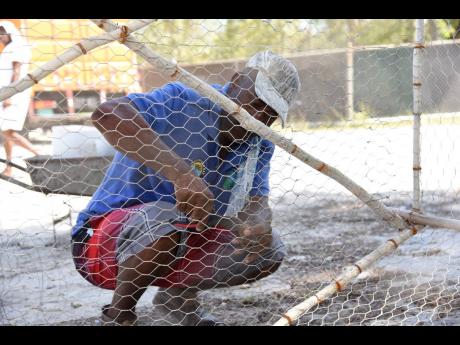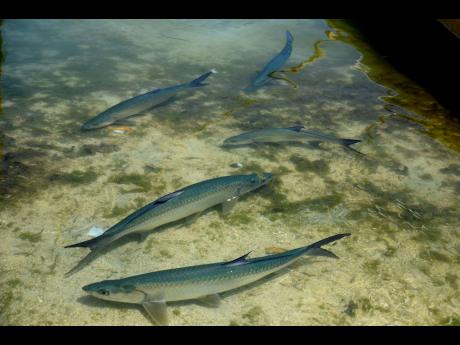Funding bind threatens Oracabessa fish sanctuary
A lack of government funding for the Oracabessa Bay Fish Sanctuary is threatening 10 years of gains in replenishing stock and could deal a massive blow to the local fishing industry.
That is the damning conclusion drawn by a board member of the Oracabessa Marine Trust, Inilek Wilmott.
“This is a huge matter for everyone concerned because there is a direct link between the fish nursery and sanctuary, the fisherfolk, their families, and the supermarket and grocery shop in each community,” Wilmott told The Gleaner on Tuesday.
A cess that was placed on the export of conch was pooled into a fund to assist local fish sanctuaries such as the one in Oracabessa, St Mary.
But the nightmarish scenario of conch overfishing has resulted in the industry being closed since last year, shutting off cash flow to fish sanctuaries.
“We had submitted our budget from last year and subsequently, the Government had informed us that no money is available for funding of the sanctuary this year,” said Wilmott.
Although the sanctuary is a beneficiary of non-governmental donor funding for equipment, outreach projects, educational campaigns, and training, but its financing is derived primarily from state coffers, Wilmott said.
The Government provides about $5 million per year towards the Oracabessa sanctuary expenditure.
“That is the gap we will be faced with this year. We have to look at how to come up with some ingenious funding mechanisms to offset what will be lost as a result of the Government’s reluctance or inability to fund us further,” Wilmott said.
There are indications that the Government has not absolutely closed the door to the prospect of funding, but budgetary concerns linked to the recession-hit Jamaican economy will lessen the likelihood of the spigot being opened.
Job losses and plunging fortunes in commerce have led to projections that the Jamaican economy might contract by up to 14 per cent in the June quarter and six per cent in fiscal year 2020-2021.
VITAL TO LIVELIHOOD
“All we do here is dependent on the funding from the Government. The fish sanctuary is really a nursery, and as fisherfolk, it is vital to our livelihood,” added Wilmott.
The Marine Trust board member said that the Fisheries Division had made a submission to Parliament at the end of April, which is being reviewed.
“The Oracabessa Bay Fish Sanctuary is celebrating 10 years since its establishment and has been credited with an exponential rise in fish stock by an estimated 10,000 per cent.
“In 2011, we were among the worse reefs in Jamaica because NEPA would go around annually to assess reefs,” said fishing warden Hugh Fannell, referring to the National Environment and Planning Agency, Jamaica’s chief environmental regulator.
“This year, the three top reefs surveyed by NEPA can be found inside our sanctuary.”
The sanctuary was started through a partnership with the Oracabessa Foundation and the Fishers Association. At the outset, wardens were using their own boats to patrol the sanctuary. That example, said Wilmott, is evidence of how invested community folk were in guarding the environment and fishing economy.
Senior lecturer in zoology at the University of the West Indies, Mona, Dr Karl Aiken, agrees that operations at the fish sanctuaries will be hampered by the loss of funding.
He noted, however, that among other things, the under-reporting of catches seriously impacted the conch sector and that scientific analysis in 2018 indicated that only a full-scale shutdown of that sector in the short term could save the multimillion-dollar industry.
“There were certain activities that were in contravention of sustainable fishing, and one of them was the under-reporting of catches complicated by foreign poaching,” Aiken said.
“At the moment, we don’t have any comparable cess or export tax on lobsters and spiny lobsters. We have been thinking about introducing a mini cess on the export of spiny lobsters, but it is taking a long time.”



